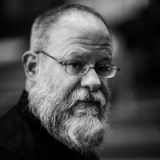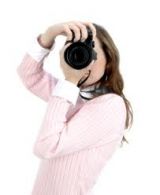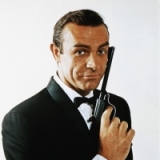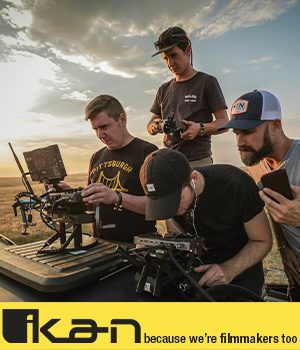- Forum
- General Discussion | Introductions | Off Topic Forum
- Photography General Discussion
- No love for fixed 50mm fans with APS cameras
No love for fixed 50mm fans with APS cameras
-

- william_cpa
- Vendor
-
- Nikon D2X, Canon 5D II, Canon T3i, Nikon D40, 2x Mamiya RB67
- Followers: 139
- Posts: 613
-
Points:
0
Post #383780
Shadowfixer1 wrote:
Why? Here's why. I just purchased a mirrorless camera. I wanted a Fuji because I like Fuji images. I've been using Nikons for years and for 95% of what I do, I use the 18-200 VR lens. The reason I didn't buy the Fuji was they didn't one lens to cover what my 18-200 does. Olympus did so that is the system I bought into. People always want to compare behavior in the different formats. In fact that's always the first question to come up when discussing different formats. Sorry you don't understand this but it is true. If you don't want to know the equivalency, fine, but I don't see the need to try and correct someone when they talk about equivalent focal lengths because in the groups I speak to, that's one of the very first questions asked. When digital first came out, it was always the first question asked. I'm not trying to start an argument, I just don't understand the soapbox on this issue. Why does it matter if someone wants to know.garyrhook wrote: Since there'a trend of late for taking threads in new directions,
Shadowfixer1 wrote: but people need a way of relating what they will get between different formats
Why?
And how often do people really need to compare behavior in formats?
Since focal length can not change, ever, and it was the marketing departments of the manufacturers that instigated this nonsense, why do we continue to propagate something that is technically incorrect? Especially when, mathematically, it is impossible to produce identical results with 2 differently sized sensors?
Boy, I hope I don't have to pull out my "Stand back, I'm going to use math" t-shirt.
I agree with you on this with regards to photogs who are moving from 35mm and are very familiar with how lenses work in that format. Just like changing from fahrenheit to celcius or inches to cm etc. There is often a need for equivalence. It makes it easier.
When learning APSC from scratch, if someone is not already familiar with 35mm format, it might help just starting with 29mm being the normal. Anything shorter is wide-angle, anything longer is telephoto.
-

- garyrhook
- Oh Wise One
-
- Nikon D850, Nikon D750, Panasonic G7K
- Followers: 912
- Posts: 11103
-
Points:
67681
Post #383782
Shadowfixer1 wrote: Why? Here's why. I just purchased a mirrorless camera. I wanted a Fuji because I like Fuji images. I've been using Nikons for years and for 95% of what I do, I use the 18-200 VR lens. The reason I didn't buy the Fuji was they didn't one lens to cover what my 18-200 does. Olympus did so that is the system I bought into. People always want to compare behavior in the different formats. In fact that's always the first question to come up when discussing different formats. Sorry you don't understand this but it is true.
I never said I don't understand it. I maintain that it's a red herring that obfuscates more than clarifies.
If you don't want to know the equivalency, fine, but I don't see the need to try and correct someone when they talk about equivalent focal lengths because in the groups I speak to, that's one of the very first questions asked. When digital first came out, it was always the first question asked. I'm not trying to start an argument, I just don't understand the soapbox on this issue. Why does it matter if someone wants to know.
See above. It's a red herring. The only issue is the image size. Given a focal length of X, a smaller sensor is going to capture less of the rendered image than a larger sensor. How is that complex?
Yeah, so it's a soapbox. Sorry about that. I'll hush now.
-

- KCook
- Photo Elder
-
- Canon EOS 50D and Olympus E-P5
- Followers: 1325
- Posts: 5410
-
Points:
32913
Post #383801
Scotty wrote:
hghlndr6 wrote:
Scotty wrote:
Shadowfixer1 wrote:
Technically correct, but people need a way of relating what they will get between different formats so call it what you want but there is an equivalent.garyrhook wrote:

<math and geometry nazi>
What he said. Crop factor and sensor size have no affect on focal length, which is fixed. There's no "equivalence".
</math and geometry nazi>
Agreed. Everybody knows what you mean when you say it's this many mm's on crop. I'm just putting out information for education purposes.
I actually believe, (correct me if i'm wrong anybody), mm is measured by the distance between the rear element and the sensor?
According to Nikon, it's not a measured distance but a calculated one. Didn't know that.
"Focal length, usually represented in millimeters (mm), is the basic description of a photographic lens. It is not a measurement of the actual length of a lens, but a calculation of an optical distance from the point where light rays converge to form a sharp image of an object to the digital sensor or 35mm film at the focal plane in the camera. The focal length of a lens is determined when the lens is focused at infinity.
The focal length tells us the angle of view—how much of the scene will be captured—and the magnification—how large individual elements will be. The longer the focal length, the narrower the angle of view and the higher the magnification. The shorter the focal length, the wider the angle of view and the lower the magnification."
www.nikonusa.com/en/Learn-And-Explore/Ar...ng-focal-length.html
This is why I could never be an engineer. Interesting stuff.
Vee are tormented by semantics! To be ikky about it, Focal Length itself, as commonly used in describing camera lenses, is really "effective focal length for infinity". A "length" (not measurement) that is the equivalent (sorry Gary) to a pinhole imaging a subject at infinity. Linky -
www.pierretoscani.com/echo_focal_length.html#FocalLength02
Kelly
-

- garyrhook
- Oh Wise One
-
- Nikon D850, Nikon D750, Panasonic G7K
- Followers: 912
- Posts: 11103
-
Points:
67681
Post #383812
KCook wrote: Vee are tormented by semantics! To be ikky about it, Focal Length itself, as commonly used in describing camera lenses, is really "effective focal length for infinity". A "length" (not measurement) that is the equivalent (sorry Gary) to a pinhole imaging a subject at infinity.
Very good, very precise, and very interesting. Yes, a length, not a measurement, makes perfect sense. And there's nothing wrong with the word "equivalent" when it's used appropriately. IMO.
-

- Camera Diva
- Photography Hooked
-
- Canon EOS-5D Mark II
- Followers: 215
- Posts: 921
-
Points:
5081
Post #383838
At the beginning of time there was absolutely nothing. And then it exploded! - Terry Pratchett
-

- william_cpa
- Vendor
-
- Nikon D2X, Canon 5D II, Canon T3i, Nikon D40, 2x Mamiya RB67
- Followers: 139
- Posts: 613
-
Points:
0
Post #383843
Camera Diva wrote: Don't get me wrong, I enjoy shooting with a 50mm. But would I buy a camera today that limits me to just 50mm, when there is so much more? I personally wouldn't think there would be large enough market. Just my 2 cents.
I think your point of view is shared by many. It explains the number of kit zooms that I see in class everyday. One of the ways that lenses are marketed these days is on zoominess (my invented word).
So, you are entirely correct, a 50mm lens is restrictive in that it causes the user to zoom with their feet. The trade off, though, is in the range of apertures that are available at 50mm on a kit lens. If it is your preference to only shoot landscapes then this will, likely, not be an issue for you. If you like to shoot in low light or blur out the background, this will be a frustration. The 50mm 1.8 lens in question will allow you to shoot in ten times less light.
-

- Scotty
- Agent 007
- James Bond, PT mod.
- Followers: 1088
- Posts: 9871
-
Points:
14754
Post #383844
william_cpa wrote:
Camera Diva wrote: Don't get me wrong, I enjoy shooting with a 50mm. But would I buy a camera today that limits me to just 50mm, when there is so much more? I personally wouldn't think there would be large enough market. Just my 2 cents.
I think your point of view is shared by many. It explains the number of kit zooms that I see in class everyday. One of the ways that lenses are marketed these days is on zoominess (my invented word).
So, you are entirely correct, a 50mm lens is restrictive in that it causes the user to zoom with their feet. The trade off, though, is in the range of apertures that are available at 50mm on a kit lens. If it is your preference to only shoot landscapes then this will, likely, not be an issue for you. If you like to shoot in low light or blur out the background, this will be a frustration. The 50mm 1.8 lens in question will allow you to shoot in ten times less light.
Completely agreed. It breaks you into the prime world too, helps you clean up some of your bad shooting habits. A lot of people I believe underestimate the importance of distortion by focal length. It's really easy to just "zoom" in more to get your comp, but you're not going to have the right distortions. A 50 1.8 is a great lens to open your horizons with.
When the last candle has been blown out
and the last glass of champagne has been drunk
All that you are left with are the memories and the images-David Cooke.
-

- william_cpa
- Vendor
-
- Nikon D2X, Canon 5D II, Canon T3i, Nikon D40, 2x Mamiya RB67
- Followers: 139
- Posts: 613
-
Points:
0
Post #383851
Scotty wrote:
william_cpa wrote:
Camera Diva wrote: Don't get me wrong, I enjoy shooting with a 50mm. But would I buy a camera today that limits me to just 50mm, when there is so much more? I personally wouldn't think there would be large enough market. Just my 2 cents.
I think your point of view is shared by many. It explains the number of kit zooms that I see in class everyday. One of the ways that lenses are marketed these days is on zoominess (my invented word).
So, you are entirely correct, a 50mm lens is restrictive in that it causes the user to zoom with their feet. The trade off, though, is in the range of apertures that are available at 50mm on a kit lens. If it is your preference to only shoot landscapes then this will, likely, not be an issue for you. If you like to shoot in low light or blur out the background, this will be a frustration. The 50mm 1.8 lens in question will allow you to shoot in ten times less light.
Completely agreed. It breaks you into the prime world too, helps you clean up some of your bad shooting habits. A lot of people I believe underestimate the importance of distortion by focal length. It's really easy to just "zoom" in more to get your comp, but you're not going to have the right distortions. A 50 1.8 is a great lens to open your horizons with.
Scotty is right here. One of the issues that people starting out in photography often overlook is the proximity effect. Altering perspective in my images can only be achieved by moving closer or further away from the subject. Perspective is vitally important for a one-eye camera and a very creative tool. A zoom lens cannot alter perspective, only feet can do that.
A good, 1.8 normal prime should be available for all formats, as the op has pointed out.
Important to add that there is nothing wrong with a really good zoom lens, just a bit expensive perhaps.
-

- Stealthy Ninja
- Moderator
-
- Fuji X stuff and a 1DsIII for some reason
- Followers: 982
- Posts: 16300
-
Points:
6837
Post #383940
william_cpa wrote:
Scotty wrote:
william_cpa wrote:
Camera Diva wrote: Don't get me wrong, I enjoy shooting with a 50mm. But would I buy a camera today that limits me to just 50mm, when there is so much more? I personally wouldn't think there would be large enough market. Just my 2 cents.
I think your point of view is shared by many. It explains the number of kit zooms that I see in class everyday. One of the ways that lenses are marketed these days is on zoominess (my invented word).
So, you are entirely correct, a 50mm lens is restrictive in that it causes the user to zoom with their feet. The trade off, though, is in the range of apertures that are available at 50mm on a kit lens. If it is your preference to only shoot landscapes then this will, likely, not be an issue for you. If you like to shoot in low light or blur out the background, this will be a frustration. The 50mm 1.8 lens in question will allow you to shoot in ten times less light.
Completely agreed. It breaks you into the prime world too, helps you clean up some of your bad shooting habits. A lot of people I believe underestimate the importance of distortion by focal length. It's really easy to just "zoom" in more to get your comp, but you're not going to have the right distortions. A 50 1.8 is a great lens to open your horizons with.
Scotty is right here. One of the issues that people starting out in photography often overlook is the proximity effect. Altering perspective in my images can only be achieved by moving closer or further away from the subject. Perspective is vitally important for a one-eye camera and a very creative tool. A zoom lens cannot alter perspective, only feet can do that.
A good, 1.8 normal prime should be available for all formats, as the op has pointed out.
Important to add that there is nothing wrong with a really good zoom lens, just a bit expensive perhaps.
Right, a lot of people don't realise that perspective distortion is affected by distance to subject not really the lens itself. A fixed lens can really teach this.
Though personally I'd find 50mm on APS-C (which is what I assume the OP meant) a bit too restrictive in framing. Because often you can't get far enough back (especially indoors).
35mm would be better. 24mm better still. I like the slightly exaggerated perspective it forces when you have to get close for the "close ups" not as natural looking as a longer lens (that forces you back and give you less distortion in faces) but I feel 35mm is a nicer focal length (therefore 24mm gives similar framing on APS-C).
- Forum
- General Discussion | Introductions | Off Topic Forum
- Photography General Discussion
- No love for fixed 50mm fans with APS cameras
Latest Reviews
The Canon EOS R100 is an entry-level mirrorless camera introduced in 2023. But just because it’s an entry-level camera doesn’t mean it’s a bare-bones camera. Find out why in this review!
Nikon’s retro-looking Nikon Zfc is anything but retro. Under its classic body is a host of features and amenities that make it a worthwhile compact mirrorless camera for 2024.
The Canon EOS R50 is one of the newest R-system cameras from Canon. Is it worth your money? Find out all the details you need to know in this comprehensive review.
The Sony FE 70-200mm f/2.8 GM OSS II is Sony’s flagship mirrorless zoom lens. As such, it’s loaded with features and has a top-shelf build quality that makes it a top pick!
Forum Top Posters
-
1TCav 5 posts
-
2Scotty 5 posts
-
3Foggy 4 posts
-
4No Show 3 posts
-
5CaptNemo 2 posts
-
6Roger Lang 2 posts
-
7Otto F 2 posts
-
8Fitch 2 posts
-
9Kenta 2 posts
-
10Pork Express 2 posts
Latest Articles
Using leading lines in photography helps improve the composition by drawing viewers in and leading their eye from the foreground to the background. Explore some fine examples of this in this guide!
The Insta360 has one of the best lineups of action cams and 360-degree cameras. With these Insta360 accessories, you can elevate your photography and videography game!
Creating impactful photos of landscapes depends on many factors, not the least of which is your talent behind the lens. This guide explores other elements required for the best product.
The Canon EOS R100 is an entry-level mirrorless camera introduced in 2023. But just because it’s an entry-level camera doesn’t mean it’s a bare-bones camera. Find out why in this review!
Are you ready to upgrade your camera? Before buying new, you might consider the value of purchasing used gear to save money.
The Olympus OM-D E-M10 Mark IV is a micro four thirds camera released in 2020. It’s an entry-level system along with the OM-D E-M5 Mark III. Use this guide to determine which one is best for you!
Blue hour photography might not be as well known as golden hour photography, but it is every bit as good a time to create epic images of landscapes. Learn how in this quick tutorial!
Nikon’s retro-looking Nikon Zfc is anything but retro. Under its classic body is a host of features and amenities that make it a worthwhile compact mirrorless camera for 2024.

















